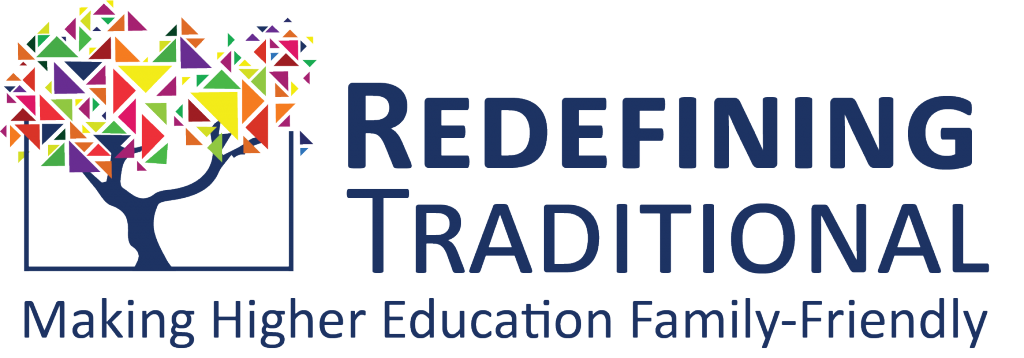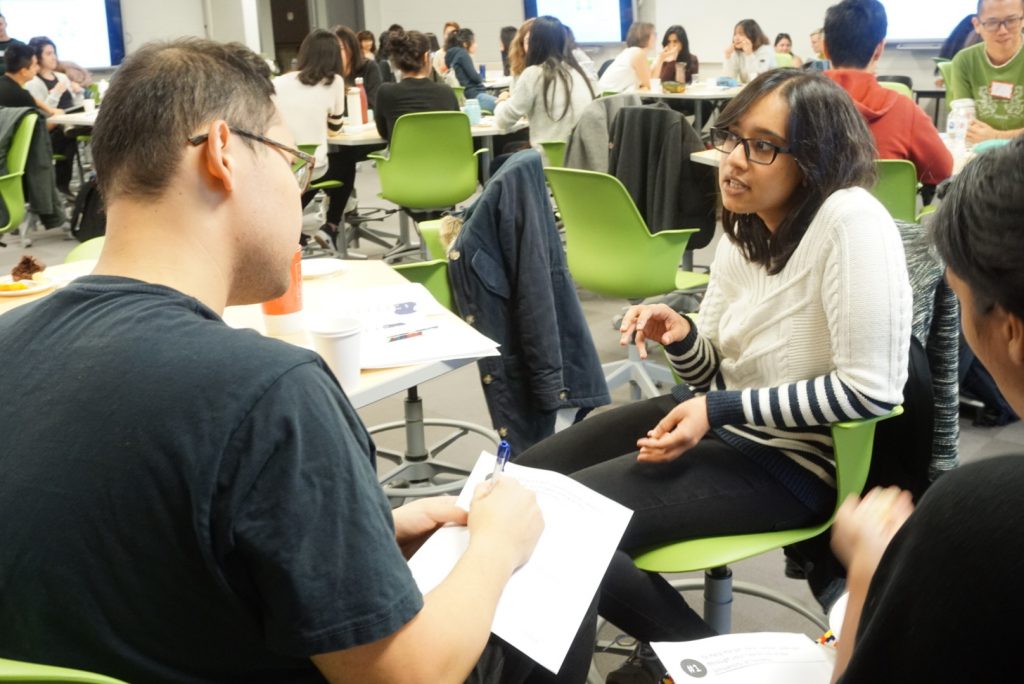
By Celeste Pang, Sauliha Alli, Sanja Ivanov and Heather Watts
Design thinkers at the Innovation Hub share the backstory of the Redefining Traditional virtual community of student parents and their supporters.

By Celeste Pang, Sauliha Alli, Sanja Ivanov and Heather Watts
Design thinkers at the Innovation Hub share the backstory of the Redefining Traditional virtual community of student parents and their supporters.
By Terri-Lynn Langdon, Editor and Writer
Develop enough courage so that you can stand up for yourself and then stand up for somebody else.
– Maya Angelou
![]()
At the Innovation Hub we honor our commitment to design with and for students. This work intersects with a scope of communities, faculties, and voices to ensure that we can co-create a university that works for all. Recently the University of Toronto has addressed a commitment to anti-black racism in solidarity with Black lives, communities, and spaces. Through conversations, protests, and movements we are experiencing a critical moment in time to end racialized violence. This is a centuries-long movement that must be joined, loved, and actively acknowledged.
In these conversations we have also recognized that it’s important to name racism and support anti-black racist efforts. Compounded by the reality of COVID-19, many Black communities are disproportionately impacted by racism in education, health care, and law enforcement. These experiences are present in many spaces we are a part of – in Canada and beyond. We must continue to acknowledge and address by resisting these types of discrimination in the foundations of the work we do.

By Darren Clift, Writer
It’s easy to exercise creativity during childhood, when imaginations are unrestrained. But as we grow up, we learn to leash our imaginations, to criticize our own creativity. The open parks of childhood become the closed spaces of our grown-up selves.
Design thinking seeks to re-liberate our creativity, but the forces and learned behaviours pushing against it are strong. To see how design leadership can nurture fresh ideas, I spoke to Gabriele Simmons, a Senior Project Assistant at the Innovation Hub.


As we work and learn in these uncertain times of COVID-19, the Innovation Hub has been thinking deeply about our projects this summer, and how they can truly benefit the UofT community and beyond. We want to offer our potential team members the opportunity to both contribute to the university and learn new skills during these times. We’re looking for dedicated students who are interested in improving campus life by focusing on student needs, who want to work with design thinking inspired methods, and also have the ability to work remotely and engage in virtual project work in collaborative environments. We hope to put together a diverse team that enjoys the challenges of our work!
Please note that job postings go live April 30th, 2020.
The deadline for applying to positions is Monday, May 4th, 2020 at 11:59pm.
Read below for job descriptions, and go to the Career & Co-Curricular Learning Network and search for the work study job board to find the positions and apply.

By Max Yaghchi, Writer
Can empathy be learned?
This question is central to the Innovation Hub’s methods. We use design thinking to take “a human-centred approach to solving problems,” and since the rise of empathic design in the late 1990s, designing for humans first has meant empathy.1

On Thursday, January 9, the Innovation Hub launched the third edition of our Design Thinking Experience Program (DTEP). As in our February and September 2019 programs, we are working with participants to understand and solve challenges at UofT using human-centred design thinking and empathy-based approaches. This time, in addition, we’re thrilled to welcome staff members back to our design teams.

By Anusha Arif, Writer
To design for students, we need to understand the student experience. Thus, the Innovation Hub prioritizes learning to listen—interviewing empathically and attuning ourselves to the world revealed through participants’ words. Though ‘listening’ is a basic skill, listening deeply is another art, and learning is an important part of the process. Some Innovation Hub members come with experience from anthropological, sociological, or other human-centred research, but many others are new to empathic interviewing. How does this learning process go for them? What do they find challenging and interesting?

For the final View from the Inside post of this semester, Sharon Lam reflects on how we share our insights at the Innovation Hub. To read more reflections from Sharon, click here.
One of the final stages of Innovation Hub projects is reporting on our findings. This may be in the form of written reports, but can also include presentations and visualisations. Depending on the project, the audience of partners and stakeholders receiving our insights differs, but in each case, we want to clearly convey our insights, so our partners can use them to ideate and prototype. We do this in the form of “Design Principles”—aspirational themes to inspire and guide our partners as they develop solutions. While reports, presentations, and design principles need to be accurate, they also need to be memorable and moving.
By Eddie Huang and Charis Lam
Solving the problems of an increasingly complex world requires the education of critical and creative thinkers. Empowering educators to develop students’ integrative thinking skills—to help students “face … the tension of opposing ideas and … generate a creative resolution … in the form of a new idea [that] … is superior to each”1—is essential to developing the next generation of students. The I-Think Initiative works with K-12 students and educators to teach integrative thinking practices and explicit thinking techniques, which participants use to tackle real-world problems. Similarly, at the university level, the Innovation Hub gives students the tools of design thinking to tackle issues in campus life. Together, we see a need to reframe education at all levels to reflect the challenges of the modern world.